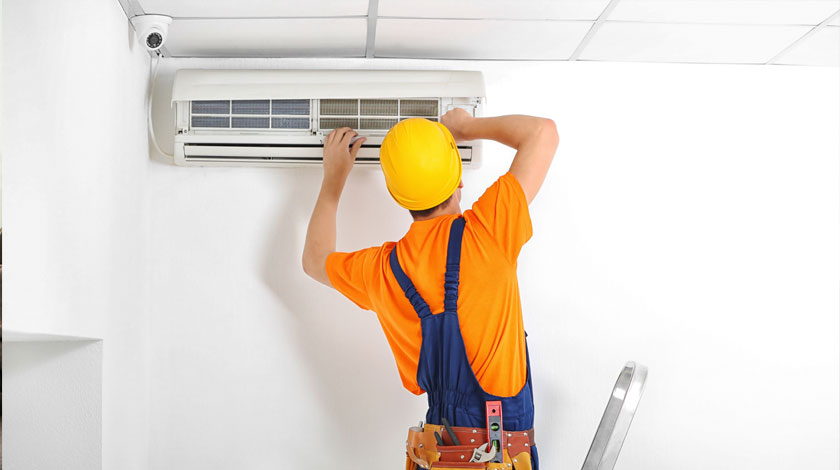
How Do I Know If My Air Conditioner Needs A New Compressor?
Introduction
Air conditioners are a crucial part of modern comfort, especially during those sweltering summer months. However, like all machinery, they can develop issues over time. One common problem is a failing compressor. But how do you know if your air conditioner needs a new compressor? This article will guide you through the signs of compressor failure, potential causes, and what to expect during an AC compressor replacement.
Understanding the Role of an AC Compressor
What is an AC Compressor?
The compressor in your air conditioning unit is often referred to as the heart of the system. It compresses refrigerant gas and circulates it through the system to cool your indoor space effectively.
How Does the Compressor Work?
When your thermostat signals for cooling, the compressor begins its work by compressing low-pressure refrigerant same day hvac repair Van Nuys into high-pressure gas. This process raises the temperature of the gas before it moves to the condenser.
Why Is It Important?
A functioning compressor ensures that your AC can maintain a comfortable temperature indoors. If it fails, your entire cooling system may become ineffective.
How Do I Know If My Air Conditioner Needs A New Compressor?
Identifying whether you need an AC compressor replacement can be tricky. Here are key indicators:
Unusual Noises
If you hear grinding, squealing, or clanking sounds coming from your air conditioner, it could be a sign that the compressor is failing.
Inadequate Cooling
If your unit runs but fails to cool down your home adequately, this might indicate that the compressor is losing efficiency.
Increased Energy Bills
A sudden spike in energy costs can mean that your air conditioning system is working harder than usual due to a malfunctioning compressor.
Frequent Cycling
If your unit frequently turns on and off (short cycling), it might be struggling with its compressor.
Leaking Refrigerant
Compressor issues can lead to refrigerant leaks; if you notice pooling liquid under your AC unit or reduced coolant levels, this could be a red flag.
Burning Smell
An electrical burning smell may indicate serious problems with the compressor or electrical components connected to it.
Signs Your Air Conditioner Might Need a Replacement Compressor
1. Frequent Repairs
If you're calling for repairs more often than usual, it's a sign that something more significant may be wrong with your system — perhaps even requiring an entire AC compressor replacement.
2. Age of Your System
Most compressors last about 10-15 years. If yours is nearing that age and showing any signs of trouble, it might be wise to consider a replacement.
3. Poor Airflow
If you're not getting enough airflow through vents even when the unit is running at full capacity, this could indicate a failing compressor.
Common Causes of Compressor Failure
Lack of Maintenance
Regular servicing helps identify potential issues before they escalate into major problems like complete failure.
Overheating Issues
Compressor overheating can occur due to various factors such as restricted airflow or inadequate refrigerant levels leading to failure.
Contaminated Refrigerant
If contaminants enter the refrigerant lines, they may cause blockages leading to stress on the compressor itself.
What Happens During an AC Compressor Replacement?
Assessment by a Professional Technician
The first step involves evaluating whether it's indeed necessary for you to undergo an AC compressor replacement or if repairs would suffice.
Removal of Old Compressor
Once deemed necessary, technicians will safely remove the old unit while ensuring no damage occurs within other parts of your air conditioning system.
Installation of New Unit
Installing a new AC compressor involves connecting it properly with electrical lines and ensuring all seals are tight to prevent leaks.

Testing for Efficiency
After installation, professionals will run tests on your system to ensure everything operates smoothly before concluding their service.

Cost Considerations for AC Compressor Replacement
Average Costs Involved
The cost for replacing an air conditioner’s compressor can range widely based on brand type and labor costs in different regions—usually between $800-$2500.
Factors That Affect Pricing
- Brand and model
- Labor rates
- Warranty options
DIY vs Professional Help: When Should You Call for Assistance?
While some minor troubleshooting tasks can be performed by homeowners themselves (like changing filters), dealing with compressors is best left to certified professionals who have specialized training and tools necessary for safe handling & repairs.

FAQs
Q1: How can I tell if my AC needs more refrigerant?
It typically means there’s either too much or too little refrigerant in circulation due to leaks; consult with HVAC professionals for accurate diagnosis!
Q2: Can I run my air conditioner with a faulty compressor?
Running an AC unit with a failing or faulty compressor may lead further damage; it's advisable not to use it until repairs are made!
Q3: What should I do if my air conditioning starts making strange noises?
Stop using it immediately! Strange noises usually indicate significant issues requiring professional assessment!
Q4: Will my insurance cover an AC compressor replacement?
This depends on your specific policy terms regarding home appliances; consult directly with your insurance provider for clarity!
Q5: How long does an AC compressor typically last?
On average, they last around 10-15 years depending on usage frequency & maintenance practices!
Q6: Is replacing just the compressor worth it compared to getting a new system?
If other components are relatively new & healthy (e.g., coils) then yes! Otherwise investing in a whole new setup might offer better value long-term!
Conclusion
Knowing how to identify whether your air conditioner needs a new compressor plays a vital role in maintaining efficient home comfort systems year-round! By paying attention closely towards unusual signs (noises/temperature changes), performing regular maintenance checks proactively leaves less room for costly breakdowns later down-the-line! Always remember though – when in doubt about anything related HVAC-related concerns – call-in trusted professionals who understand these systems inside out!